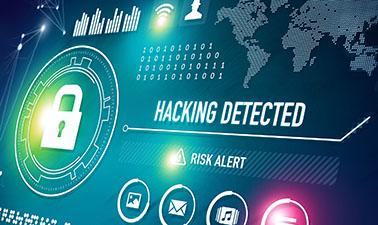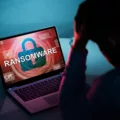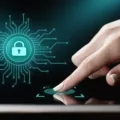Digital forensics is a rapidly growing field of study that combines elements of computer science, law enforcement, and information security. It’s used to investigate cybercrimes, uncover hidden digital evidence, and protect digital systems from malicious attacks. Digital forensics courses provide students with the knowledge and skills needed to pursue a career in this growing field.
In a digital forensics course, students learn about the legal considerations applicable to computer forensics and how to identify, collect and preserve digital evidence. They also gain an understanding of the role law enforcement plays in a cybercriminal investigation and how these professionals work with cybersecurity professionals during a digital forensics investigation. Additional topics covered include data recovery techniques, malware analysis, network forensics, database forensics, mobile device forensics, cloud computing technologies, ethical hacking methods, and more.
Those interested in taking a digital forensics course can choose from a variety of options including degree-level qualifications such as forensic computing and security or cyber security degrees; postgraduate qualifications such as computer science or financial technology; or professional training such as the StationX Complete Cyber Security Course or edX Computer Forensics Course. There are also many other online courses available on Udemy or ISFCE CCE Bootcamp® Guided Self-Study Courses like GCFE (SANS GIAC).
Overall, taking a digital forensics course can open up many exciting opportunities for those interested in combatting cybercrime as well as protecting businesses from malicious attacks. It’s an area that is growing rapidly with plenty of job opportunities available for those who have completed the necessary training.
Understanding Digital Forensics Course
Digital Forensics is an area of study that focuses on the recovery and investigation of material found in digital devices, often in relation to a crime. The Digital Forensics Concepts course focuses on the legal considerations applicable to computer forensics and how to identify, collect and preserve digital evidence. The course will provide students with a comprehensive understanding of the fundamentals of computer forensics, as well as an introduction to more advanced topics such as data analysis and network forensics. Through lectures, practical exercises, and hands-on activities, students will gain experience in many aspects of computer forensics including data acquisition, analysis techniques, and reporting procedures.

Source: eccouncil.org
Qualifications Needed for Digital Forensics
To become a digital forensics professional, you will need to have a strong understanding of computing and security technologies. A degree or postgraduate qualification in forensic computing, computer science, cyber security, digital forensics, or financial technology is recommended. Additionally, certifications such as the Certified Digital Forensics Examiner (CDFE) and the International Association of Computer Investigative Specialists (IACIS) Certified Forensic Computer Examiner (CFCE) are also valuable credentials for professionals in this field. These certificates are issued by organizations such as the US Department of Defense and the International Society of Forensic Computer Examiners. As part of your studies and training, you will be expected to have knowledge in areas such as data recovery and analysis, computer networks, digital evidence handling procedures, and investigative processes. You will also need to understand legal aspects related to digital forensic investigations, including laws related to data privacy and evidence gathering.
Learning Digital Forensics
If you’re looking to learn digital forensics, there are a variety of courses available online. One of the best courses out there is StationX’s Complete Cyber Security Course. It’s an extensive course that covers all aspects of cyber security and digital forensics, including cryptography, malware analysis, incident response, and digital evidence gathering. The course also includes hands-on exercises to help you gain experience in using digital forensic tools.
Another great option is the edX Computer Forensics course. This course provides an introduction to the legal principles that govern computer forensics and teaches students how to use digital forensic tools to recover data from a variety of sources. It also covers data acquisition techniques, analyzing hard drives, recovering deleted files, and more.
Cybrary offers a comprehensive library of online courses related to digital forensics, including topics such as data analysis, network forensics, ethical hacking, and more. They provide step-by-step video tutorials that cover everything from basic concepts to advanced techniques for collecting evidence from computers and mobile devices.
For those who want a more self-paced approach to learning digital forensics, Udemy has a Digital Forensics and Electronic Evidence course available for purchase. It covers the basics of computer forensics as well as how to use various forensic tools for data recovery and analysis.
The International Society of Forensic Computer Examiners (ISFCE) offers its CCE Bootcamp® Guided Self-Study Course for anyone interested in becoming certified as a computer examiner or digital investigator. This self-study course includes online training modules that provide an overview of digital forensics concepts such as file systems and recovery methods along with practice case studies based on real-world scenarios.
Finally, SANS GIAC’s GCFE (Global Certified Forensic Examiner) certification program is one of the most respected credentials in the field of computer forensics. The program combines lectures with hands-on labs that teach students how to investigate cybercrimes and collect evidence from computers and mobile devices using various forensic toolsets.

The Salaries of Digital Forensics Professionals
Yes, digital forensics pays well. Cyber investigators typically earn an average annual salary of around $63,600, according to PayScale. As a cyber investigator, you will be responsible for recovering and analyzing digital evidence that may be linked to criminal activity. Your job may involve using specialized software or tools to extract data from computers or mobile devices. You will also need to be highly organized and have excellent problem-solving skills in order to uncover hidden clues and draw meaningful conclusions from the digital evidence you uncover. With the right experience and qualifications, your salary as a cyber investigator could be even higher.
The Difficulty of Digital Forensics
Yes, digital forensic investigation is a difficult and complex undertaking. It requires a great deal of technical expertise and experience to effectively investigate digital evidence and to identify the perpetrators behind cybercrimes. In addition, the complexity of the task increases with the rapid pace of technological advancement. For example, the use of encryption makes it harder for digital forensics experts to access data stored on devices or in the cloud, while smartphone security features can make it even more difficult to extract evidence from mobile phones. Furthermore, digital forensic investigators must stay up-to-date with new technologies and techniques in order to remain effective at their job. Ultimately, digital forensic investigation is an intricate task that requires significant skill and dedication in order to be successful.
Can You Pursue a Career in Digital Forensics Without a Degree?
Yes, you can get into digital forensics without a degree. Many of the necessary skills for this field can be learned through independent study or on-the-job training. Certification courses, such as Certified Computer Examiner (CCE) or Certified Forensic Computer Examiner (CFCE), are available and can provide you with the necessary knowledge and expertise to enter the field.
Experience in related fields such as network administration, software development, and information security can also be beneficial when entering digital forensics. Additionally, having an understanding of laws related to evidence collection and computer crime is essential for success in this field. Having a basic understanding of programming languages like Python or C++ may also give you an edge when competing for jobs.
Although having a degree is not strictly necessary, it will certainly give you an advantage when looking to enter the field of digital forensics. It is important to note that employers often require at least a bachelor’s degree in computer science or other related fields for more advanced positions within the field.
The Stress of Working in Digital Forensics
Digital forensics is a highly demanding field that requires a great deal of precision and dedication. As with any job, it can be stressful in certain situations. This is especially true for digital forensics experts due to the complex nature of the work and the potential for large amounts of data to process.
The stressors associated with digital forensics mainly stem from the responsibility of maintaining accurate records and ensuring accuracy in all reports generated. Digital forensics experts must also remain up-to-date on the latest developments in technology, as well as changes to applicable laws, in order to successfully complete their tasks. Furthermore, digital forensics experts are often required to work on tight deadlines and may have to respond quickly to new cases or changes in existing cases.
Recent studies have illustrated that digital forensics experts are more likely to experience burnout and job-related stress than those working in other fields. Factors such as working long hours, dealing with difficult cases, or feeling overwhelmed by the complexity of their tasks can all contribute to burnout and job-related stress for digital forensics experts.
Overall, it is clear that digital forensics can be a stressful job due to its complexity and responsibility. However, this should not discourage anyone from pursuing a career in this field since there are numerous resources available for those looking for support or advice on how to manage their stress levels effectively.
How Long Does It Take to Earn a Digital Forensics Degree?
It typically takes four to six years to become a digital forensics analyst, depending on the educational path you choose. If you pursue a traditional four-year bachelor’s degree in digital forensics or a related field, you can expect to finish your degree in four years. However, if you opt for an accelerated program, such as an online degree or a two-year associate’s degree, it could be possible to complete your education in two years or less. After graduating, many aspiring digital forensics analysts pursue additional experience and certifications which may take several more years of training and study.
Starting a Career in Digital Forensics
To start a career in digital forensics, you’ll need to begin by earning a bachelor’s degree in computer science or a related field. Depending on the school and program you choose, this could take three to four years to complete. During your studies, it’s a good idea to specialize in security topics such as cryptography, ethical hacking, and network security.
After completing your bachelor’s degree, you can start gaining experience by taking on entry-level roles such as an information security analyst or a computer systems administrator. You can also volunteer with law enforcement agencies to gain hands-on experience with digital forensics cases.
You may also choose to pursue a master’s degree in cybersecurity or another relevant field of study depending on the type of role you’re aiming for. This could take another two to three years of study and will help you develop the skills necessary for more advanced roles in digital forensics.
Finally, many employers will require that you become certified as a digital forensic investigator before they consider hiring you. To become certified, you must pass the Certified Computer Examiner (CCE) exam administered by The International Society of Forensics Computer Examiners (ISFCE). Once certified, you’ll be qualified for more advanced roles such as incident response specialist or lead investigator.
Comparing Cybersecurity and Digital Forensics
It is difficult to definitively say which is better between cybersecurity and digital forensics, as they both serve important functions in protecting digital assets. Cybersecurity attempts to anticipate, prevent and detect cyber threats, while digital forensics is used to investigate an attack after it has taken place and can help identify the perpetrator. Each plays a vital role in protecting networks and data, so neither should be seen as superior—they are simply two sides of the same coin.
Do Digital Forensics Require Math?
Yes, math is an essential tool for digital forensics. Digital forensics is a field that uses scientific methods to gather and analyze digital evidence. As such, it relies heavily on mathematics to understand the underlying structure of data and extract meaningful information from it. Math is also used to develop algorithms for recovering data from damaged storage devices or analyzing encrypted data. In addition, mathematical concepts are used to calculate probabilities of certain events occurring and to present evidence in court. As such, having a good understanding of relevant mathematical concepts is essential for digital forensic researchers.
The Three Main Branches of Digital Forensics
The three main branches of digital forensics are computer forensics, mobile device forensics, and network forensics.
Computer forensics involves analyzing computers and other digital storage media to recover evidence for criminal investigations or civil litigation. This can include recovering deleted files, uncovering malicious activity, and examining the content of emails or web browsing history. It is also used to extract data from damaged or corrupted devices, as well as conduct security audits and establish the authenticity of digital evidence.
Mobile device forensics involves extracting evidence from cell phones and other mobile devices such as tablets, laptops, and gaming consoles. This branch of digital forensics is useful for recovering data from devices that have been damaged or stolen, as well as uncovering malicious activity on a device such as spyware or malware. It can also be used to determine the location of a device at a certain time and uncover deleted messages or other data stored on the device.
Network forensics focuses on investigating activities conducted over a networked environment such as the internet. This includes capturing suspicious network traffic, tracking malicious users on the network, recovering deleted files, and analyzing malware threats. Network forensic tools can be used to monitor traffic for potential security threats or intrusions into a system and help identify any compromised accounts or vulnerable systems connected to the network.
The Demand for Digital Forensics
Yes, digital forensics is in high demand. As cybercrime continues to rise, organizations across the world are investing more resources into digital security and scrutinizing their networks for suspicious activities. This has created a strong demand for professionals with expertise in digital forensics, who can analyze computer data and identify any potential threats or breaches. Digital forensic analysts have been highly sought after due to their ability to uncover and investigate cybercrimes, such as identity theft, fraud, and malware attacks. They can also assist companies with developing better security protocols to prevent future cyberattacks. With the global need for increased cyber security measures, the demand for digital forensic experts is expected to continue growing in the coming years.
Conclusion
In conclusion, digital forensics courses provide an invaluable opportunity to gain a deeper understanding of how technology is used in legal investigations and how to identify, collect and preserve digital evidence. With the proper training, students can become experts in cyber security, forensic computing and security, computer science, cyber security, digital forensics, financial technology, and more. Through these courses, students will develop the skills needed to be successful in the field and understand the role law enforcement plays in a cybercriminal investigation. Digital forensics courses are an essential part of the educational journey for those interested in pursuing a career in this field.








